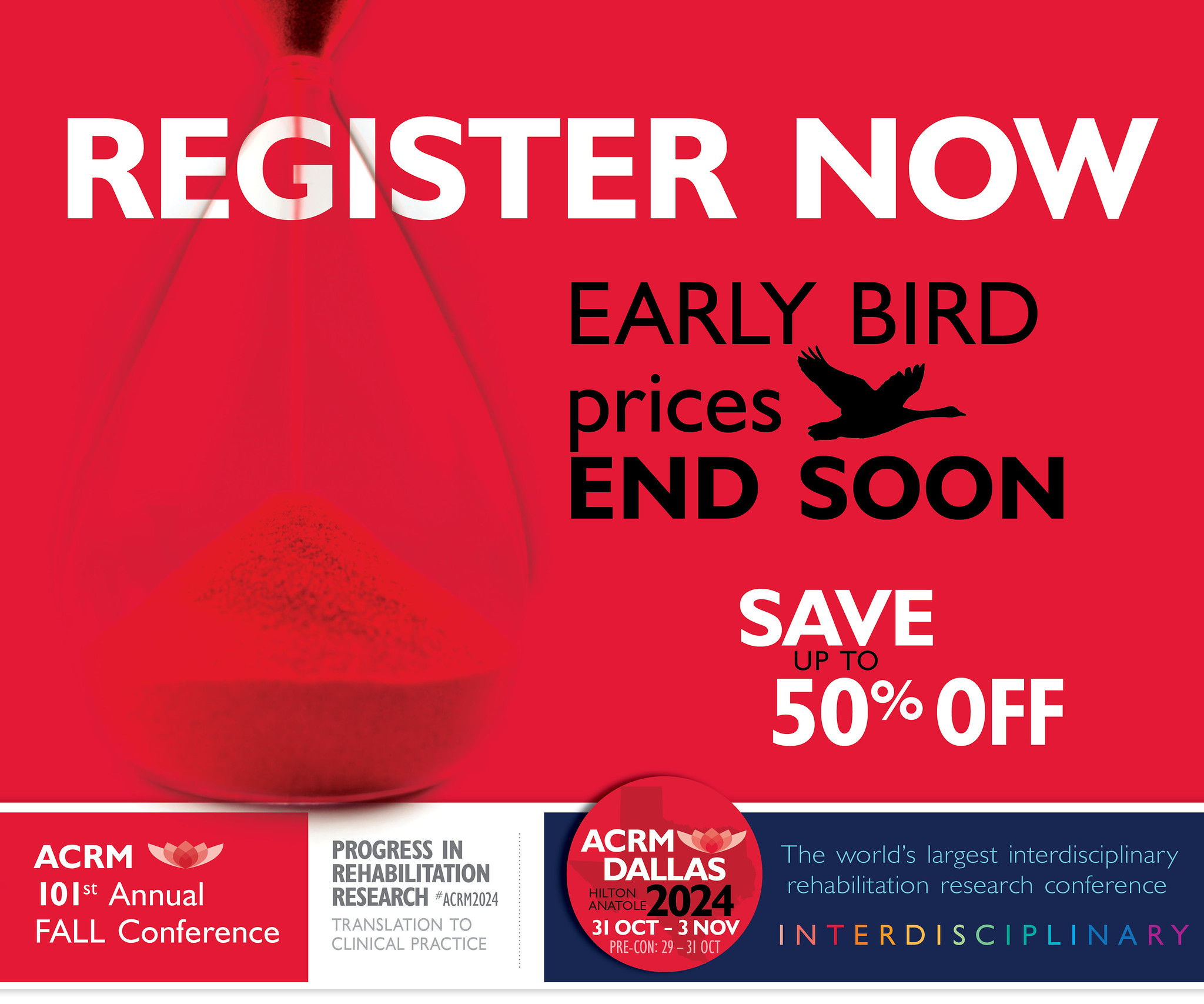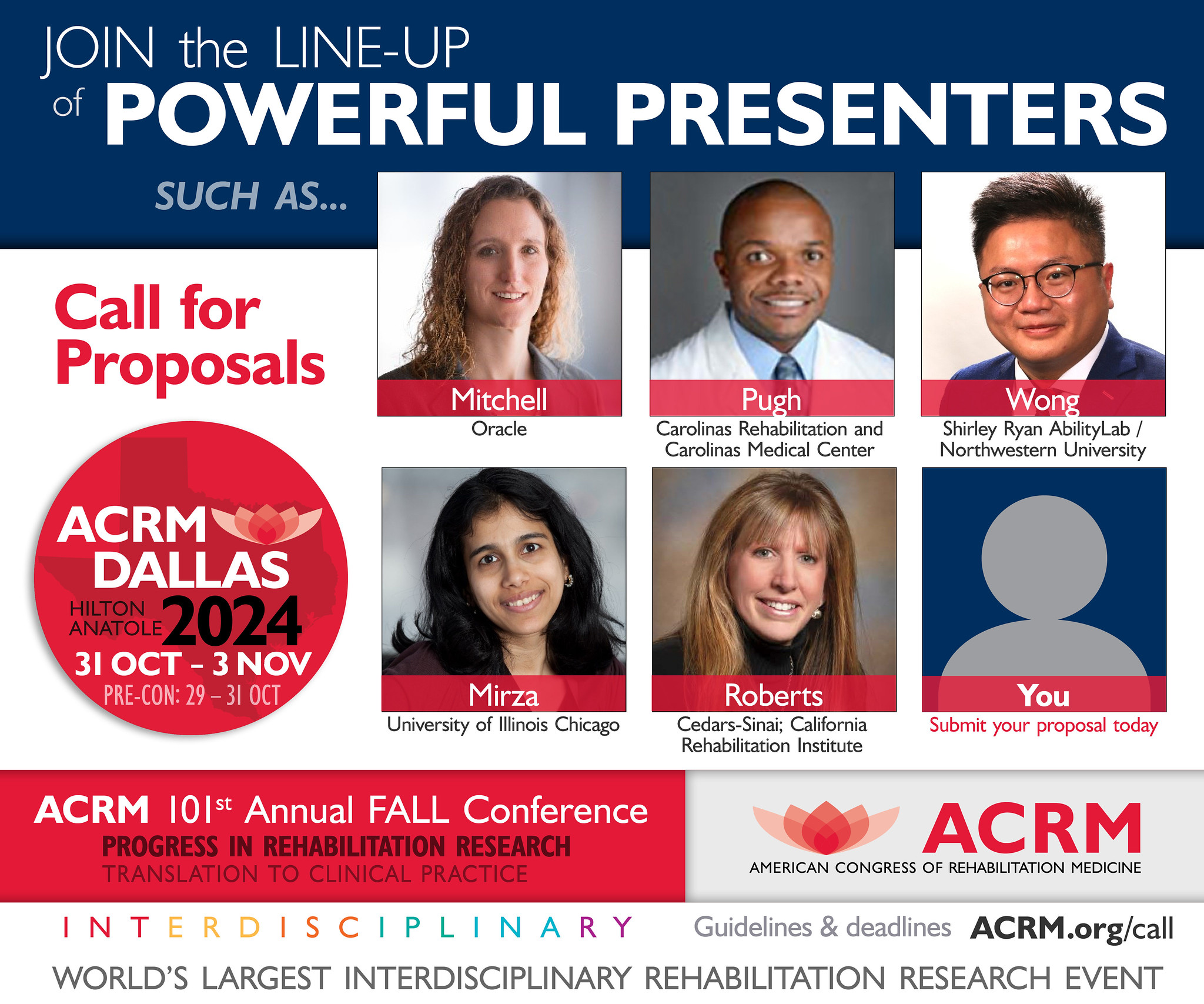Get to know and learn from your peers! This new Research Spotlight column is intended to help you get to know the work of ACRM members from all career stages and disciplines, and to give you some insight about the different paths that people have taken along their career, and some words of wisdom of how to best succeed as you navigate this path. We want to include you in one of our upcoming newsletters, so don’t be shy- contact Dawn Neumann about this opportunity now!
Meet Natalie Leland, PhD, OTR/L, BCG, FAOTA
 University of Southern California
University of Southern California
Chan Division of Occupational Science and Occupational Therapy
Assistant professor, joint appointment with the USC Davis School of Gerontology
What’s your current research focus or area you are most excited about?
My overarching research agenda aims to evaluate and implement high-quality post-acute care in order to enhance practice delivery and improve patient outcomes.
What prompted/motivated you to choose that area?
My research draws on my clinical experience working in post-acute care and integrates this perspective with my gerontology and health services training to address emerging health policy questions relevant to occupational science and occupational therapy (OSOT). Practicing in nursing homes throughout the US, I gained firsthand experience with the problems that affect healthcare quality and patient outcomes. I treated patients in multiple health systems and saw that practice culture and use of evidence-based interventions differed dramatically between facilities, yielding poor patient outcomes such as falls and injuries after the original transition home. It was this research-to-practice gap that drove me to pursue research and guides my work to date.
Briefly, what path did you take to get there? What is your career trajectory—long-term goal? What barriers or facilitators were you exposed to and how did you manage them? Pivotal experiences?
I earned by PhD in Gerontology at the University of Massachusetts Boston, which is where I learned to use large data to examine population-based policy relevant questions. I then pursued a post-doc at Brown University to learn how to work with Medicare data, and in particular the nursing home minimum data set. It was only by gaining training in both large data and policy and then focused health services expertise that I had the foundational skills necessary to begin to develop my research career.
Upon arriving at USC, I was awarded a K12 Career Development Award funded by the National Center for Medical Rehabilitation Research at the Eunice Kennedy Shriver National Institute of Child Health and Disability (NICHD). My goal was to advance my statistical analysis skills to effectively assess and document variations in patient outcomes and characterize adverse events in post-acute care across the US.
I then pursued an Agency for healthcare Research and Quality patient centered outcomes research career development award in order to gain skills in electronic medical record extraction and quality measure development along with qualitative methods to ensure any measures that will be developed reflect the values and priorities of the stakeholders whom will be impacted by the measures.
Advice for early career scientists? Words of wisdom?
Think about your long term career goal. Where do you want be and what do you want to be doing? Then identify all the skills, knowledge, and mentors that you will need to achieve that goal and go after it. Additionally, when thinking about that long-term goal, think about creating a career around something you are passionate about!
Meet Alix Sleight, OTD, PhD (cand.), OTR/L
University of Southern California
What’s your current research focus or area you are most excited about?
My dissertation research focuses on the quality of life and supportive care needs of socioeconomically disadvantaged Latina breast cancer survivors. I’m particularly interested in figuring out how occupational therapists and other rehabilitation professionals might be able to better help this population.
What prompted/motivated you to choose that area?
My mother is a breast cancer survivor, so I have always been passionate about addressing quality of life issues during cancer survivorship. When I moved to Los Angeles, I learned more about the specific challenges that many low-income Latina women face as breast cancer survivors trying to navigate the public hospital system. Lots of people are not receiving the support they need.
Briefly, what path did you take to get there? What is your career trajectory—long-term goal?
I was a book editor for several years before I became an occupational therapist. (I haven’t had a very typical career trajectory!) But as I mentioned, my mother’s experience with cancer survivorship inspired me to switch careers. I became an occupational therapist with the intention of working in oncology, but I quickly saw the potential for research to address public health issues on a broader level. I will be finishing my PhD in the next year or so, after which I hope to stay involved in oncology research in some capacity.
What barriers or facilitators were you exposed to and how did you manage them? Pivotal experiences?
I was not prepared for how difficult it would be to infiltrate the public hospital system as a researcher. There were multiple IRB’s to go through, not to mention a world of badges and clearances to obtain. I just had to take it one step at a time. Finally picking up that little blue ID badge and setting foot in the hospital as a legitimate researcher was a proud moment for me!
Advice for early career scientists? Words of wisdom?
Ask a lot of questions. Both in terms of conceptual work and administrative hurdles, I needed support. But I found that academic mentors and hospital administrators alike have been generous with their guidance. I certainly wouldn’t have been able to complete my data collection without ample assistance from many kind people.









